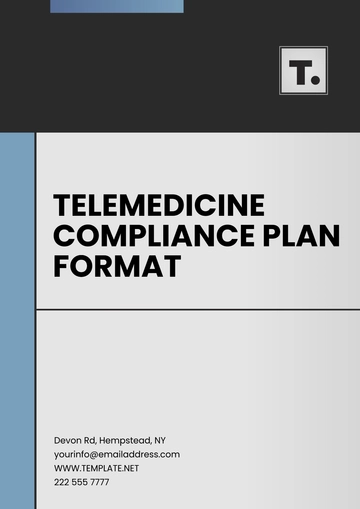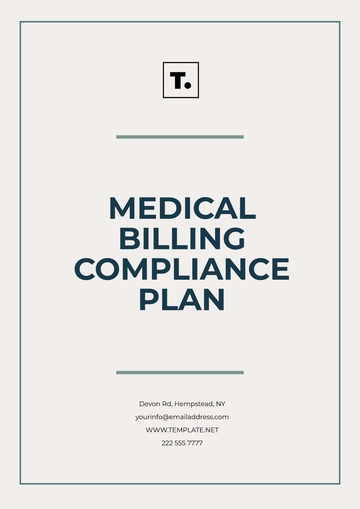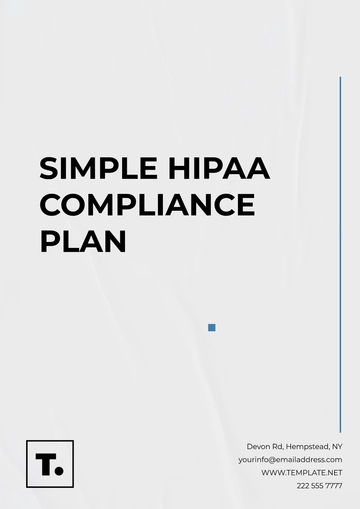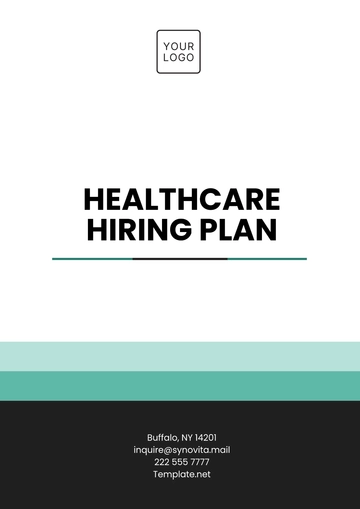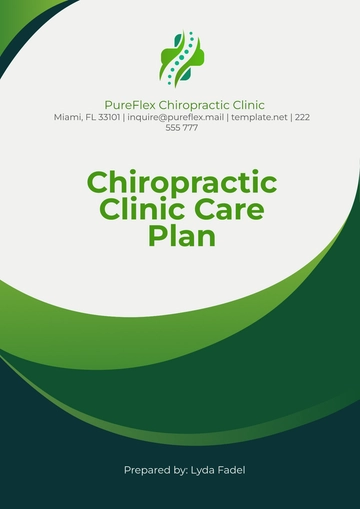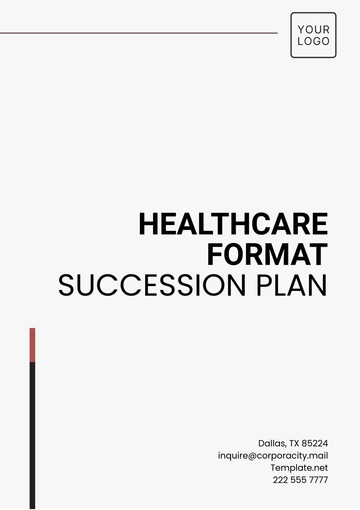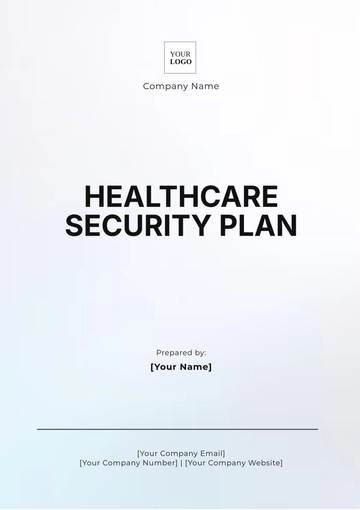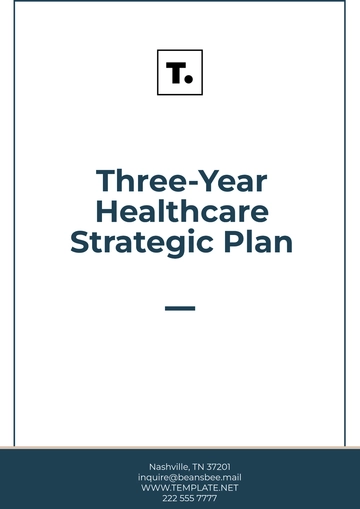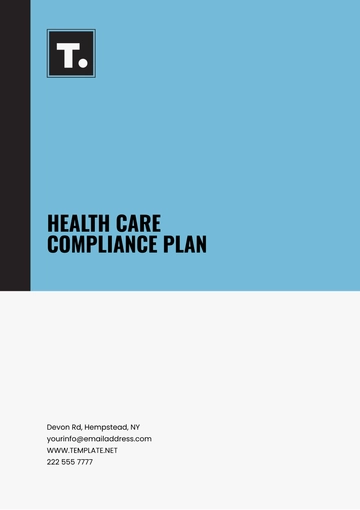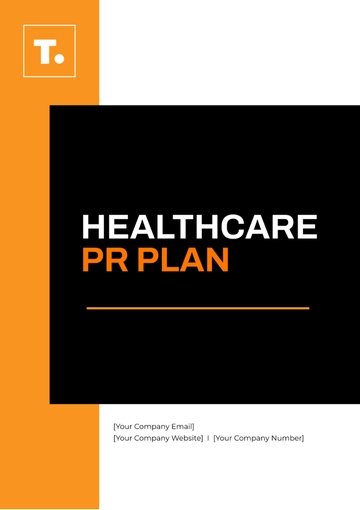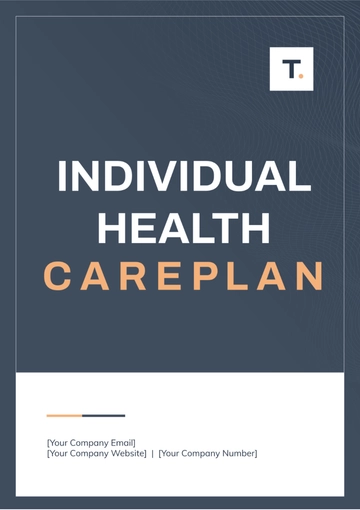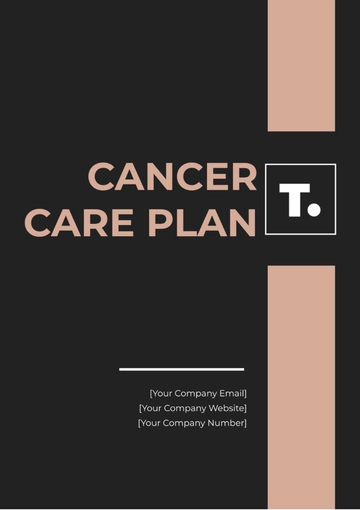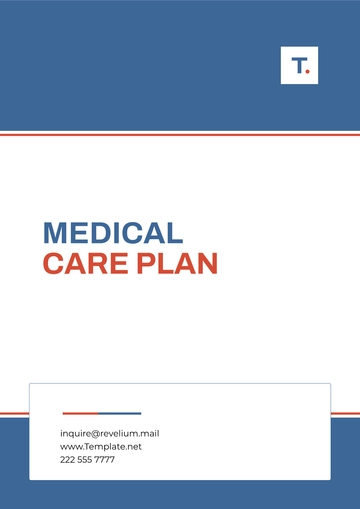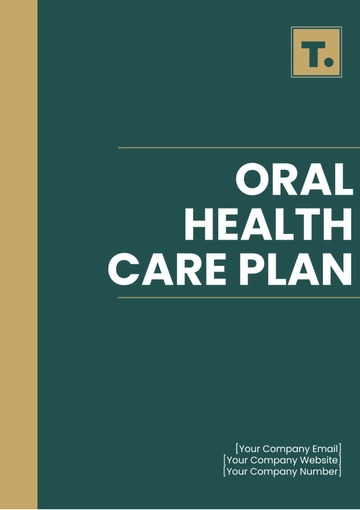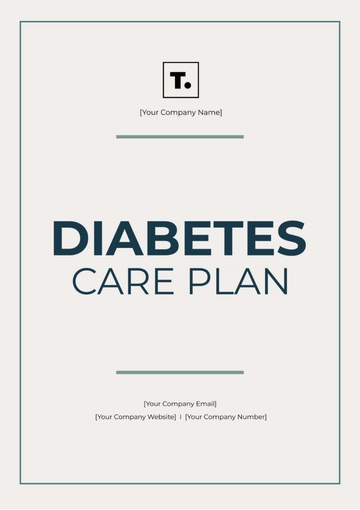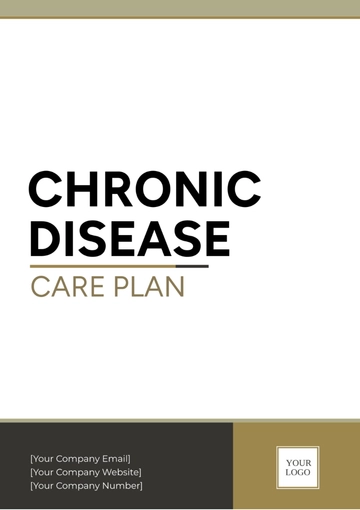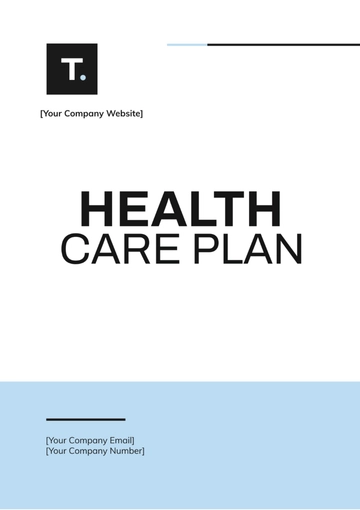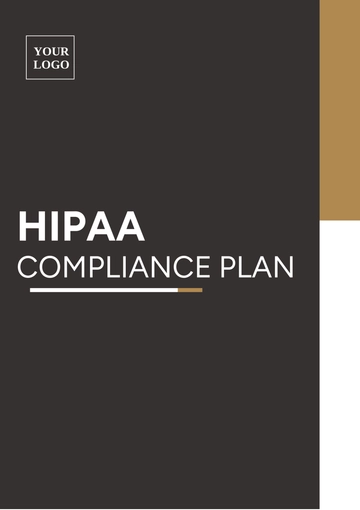Free Health Care Compliance Plan
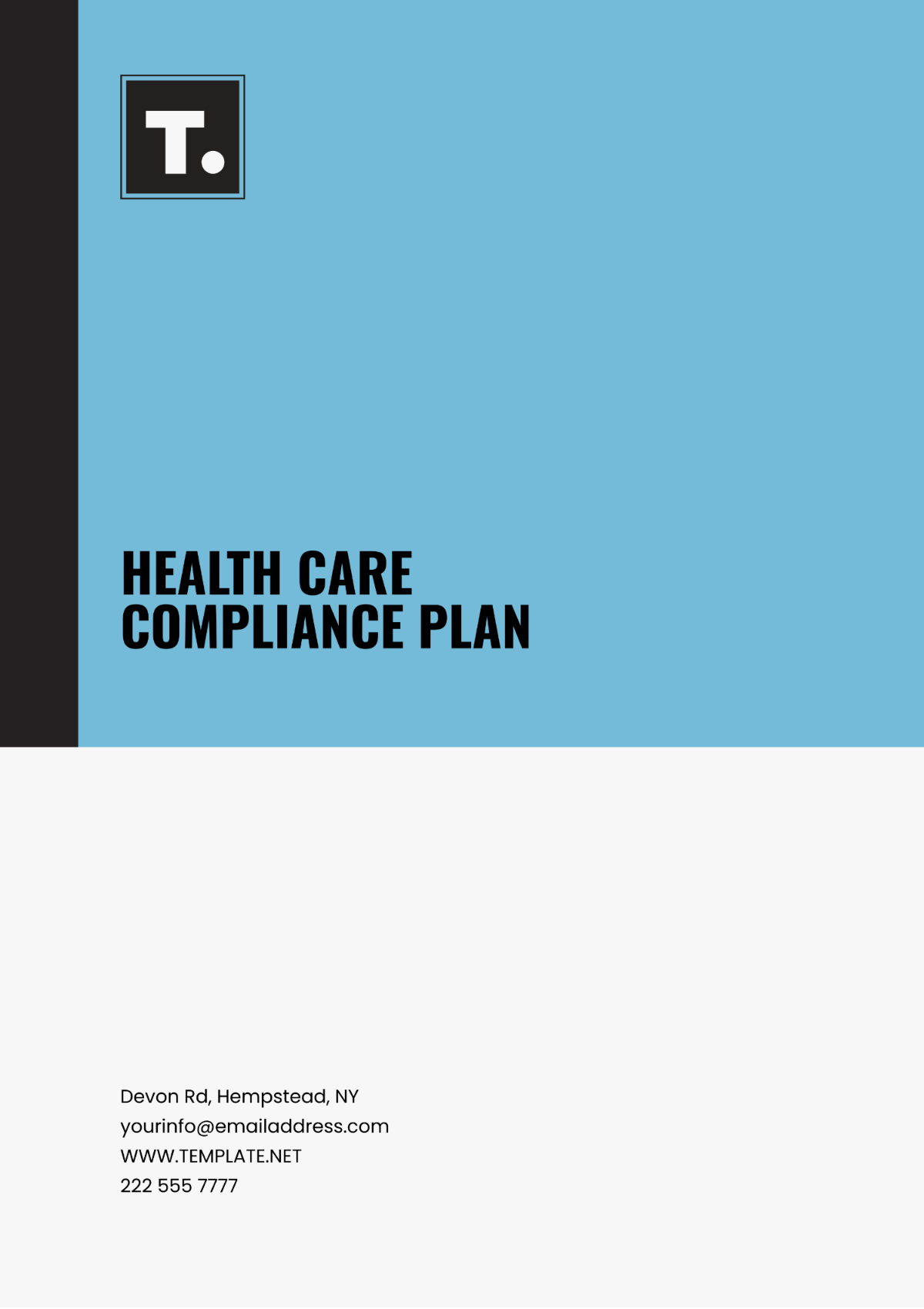
I. Introduction
The Health Care Compliance Plan is designed to provide a structured framework to ensure that [YOUR COMPANY NAME] complies with all applicable laws, regulations, and ethical standards. This plan aims to prevent, detect, and resolve any instances of conduct that do not conform to federal and state law, as well as the organization's ethical and business policies.
II. Objectives
The primary objectives of the Health Care Compliance Plan are as follows:
To ensure adherence to all applicable federal and state laws and regulations.
To promote a culture of ethical behavior and compliance within the organization.
To prevent and detect non-compliance through effective policies, procedures, training, and auditing.
To respond promptly to detected issues and enforce disciplinary measures when necessary.
III. Scope
This Compliance Plan applies to all employees, officers, directors, contractors, and agents of [YOUR COMPANY NAME]. It includes policies and procedures that govern the conduct of healthcare practices and administrative functions.
IV. Governance and Oversight
The compliance governance structure includes the following components:
Component | Responsibilities |
|---|---|
Compliance Committee | Oversees compliance activities and ensures the effectiveness of the compliance program. |
Chief Compliance Officer | Responsible for implementing and managing the compliance program. |
Department Managers | Ensure departmental compliance with policies and procedures. |
V. Policies and Procedures
The following key policies and procedures form the backbone of the Compliance Plan:
Code of Conduct: Outlines the ethical and legal standards expected of all employees and affiliates.
Privacy Policy: Ensures compliance with HIPAA and other privacy laws to protect patient information.
Billing and Coding Policy: Details accurate billing and coding practices to prevent fraud and abuse.
Conflict of Interest Policy: Identifies and manages potential conflicts of interest within the organization.
VI. Training and Education
Effective training and education are crucial for the success of the compliance program. All employees will receive training on compliance policies and procedures upon hire and annually thereafter. Special training sessions will be held for high-risk areas and roles.
VII. Monitoring and Auditing
Regular monitoring and auditing activities will be conducted to identify and address compliance risks. These activities include:
Routine internal audits
Review of billing and coding practices
Inspections of privacy and security measures
VIII. Reporting and Enforcement
All employees are encouraged to report any suspected violations of the compliance plan without fear of retaliation. Reports can be made confidentially via the compliance hotline, online reporting system, or directly to the Chief Compliance Officer.
Violations of the compliance plan will be investigated promptly, and appropriate corrective action will be taken. Disciplinary measures for non-compliance can range from additional training to termination of employment, depending on the severity of the violation.
IX. References
The following documents and resources were referenced in the creation of this Compliance Plan:
Health Insurance Portability and Accountability Act (HIPAA)
Federal False Claims Act (FCA)
Office of Inspector General (OIG) Compliance Program Guidance
State-specific healthcare regulations
X. Appendices
Appendix A: Definitions
Detailed definitions of terms used in the Health Care Compliance Plan.
Appendix B: Compliance Checklist
A comprehensive checklist to ensure all aspects of the compliance plan are being implemented effectively.
- 100% Customizable, free editor
- Access 1 Million+ Templates, photo’s & graphics
- Download or share as a template
- Click and replace photos, graphics, text, backgrounds
- Resize, crop, AI write & more
- Access advanced editor
Ensure comprehensive regulatory compliance in your healthcare organization with Template.net’s customizable Health Care Compliance Plan Template. This template, editable in our Ai Editor Tool, offers a detailed framework for developing and maintaining a robust compliance program. By safeguarding patient privacy, this tool helps protect your organization from potential legal and financial risks.
You may also like
- Finance Plan
- Construction Plan
- Sales Plan
- Development Plan
- Career Plan
- Budget Plan
- HR Plan
- Education Plan
- Transition Plan
- Work Plan
- Training Plan
- Communication Plan
- Operation Plan
- Health And Safety Plan
- Strategy Plan
- Professional Development Plan
- Advertising Plan
- Risk Management Plan
- Restaurant Plan
- School Plan
- Nursing Home Patient Care Plan
- Nursing Care Plan
- Plan Event
- Startup Plan
- Social Media Plan
- Staffing Plan
- Annual Plan
- Content Plan
- Payment Plan
- Implementation Plan
- Hotel Plan
- Workout Plan
- Accounting Plan
- Campaign Plan
- Essay Plan
- 30 60 90 Day Plan
- Research Plan
- Recruitment Plan
- 90 Day Plan
- Quarterly Plan
- Emergency Plan
- 5 Year Plan
- Gym Plan
- Personal Plan
- IT and Software Plan
- Treatment Plan
- Real Estate Plan
- Law Firm Plan
- Healthcare Plan
- Improvement Plan
- Media Plan
- 5 Year Business Plan
- Learning Plan
- Marketing Campaign Plan
- Travel Agency Plan
- Cleaning Services Plan
- Interior Design Plan
- Performance Plan
- PR Plan
- Birth Plan
- Life Plan
- SEO Plan
- Disaster Recovery Plan
- Continuity Plan
- Launch Plan
- Legal Plan
- Behavior Plan
- Performance Improvement Plan
- Salon Plan
- Security Plan
- Security Management Plan
- Employee Development Plan
- Quality Plan
- Service Improvement Plan
- Growth Plan
- Incident Response Plan
- Basketball Plan
- Emergency Action Plan
- Product Launch Plan
- Spa Plan
- Employee Training Plan
- Data Analysis Plan
- Employee Action Plan
- Territory Plan
- Audit Plan
- Classroom Plan
- Activity Plan
- Parenting Plan
- Care Plan
- Project Execution Plan
- Exercise Plan
- Internship Plan
- Software Development Plan
- Continuous Improvement Plan
- Leave Plan
- 90 Day Sales Plan
- Advertising Agency Plan
- Employee Transition Plan
- Smart Action Plan
- Workplace Safety Plan
- Behavior Change Plan
- Contingency Plan
- Continuity of Operations Plan
- Health Plan
- Quality Control Plan
- Self Plan
- Sports Development Plan
- Change Management Plan
- Ecommerce Plan
- Personal Financial Plan
- Process Improvement Plan
- 30-60-90 Day Sales Plan
- Crisis Management Plan
- Engagement Plan
- Execution Plan
- Pandemic Plan
- Quality Assurance Plan
- Service Continuity Plan
- Agile Project Plan
- Fundraising Plan
- Job Transition Plan
- Asset Maintenance Plan
- Maintenance Plan
- Software Test Plan
- Staff Training and Development Plan
- 3 Year Plan
- Brand Activation Plan
- Release Plan
- Resource Plan
- Risk Mitigation Plan
- Teacher Plan
- 30 60 90 Day Plan for New Manager
- Food Safety Plan
- Food Truck Plan
- Hiring Plan
- Quality Management Plan
- Wellness Plan
- Behavior Intervention Plan
- Bonus Plan
- Investment Plan
- Maternity Leave Plan
- Pandemic Response Plan
- Succession Planning
- Coaching Plan
- Configuration Management Plan
- Remote Work Plan
- Self Care Plan
- Teaching Plan
- 100-Day Plan
- HACCP Plan
- Student Plan
- Sustainability Plan
- 30 60 90 Day Plan for Interview
- Access Plan
- Site Specific Safety Plan
